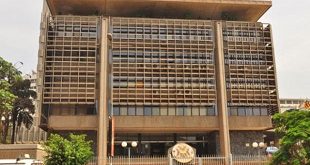
Valentine Namakula, the Director of SUGAR-TAF recently spoke to The Independent’s Ronald Musoke on the ever-changing face of corruption in Uganda.
What is SUGAR all about?
SUGAR refers to “Strengthening Uganda’s Anti-Corruption Response.” It is a programme funded by both the UK government and the European Union and it was designed in response to a government request to strengthen mechanisms of responding to corruption in Uganda. The programme essentially provides technical advisory services. We are looking at reducing levels of corruption through two mutually re-enforcing mechanisms. One is increasing the risk of engaging in corruption and the other is looking at reducing opportunities for corruption. If you look at the causes of corruption and what sustains it; sometimes it is outright greed and other times it is inefficiencies in the public institutions.
Uganda has over the last two decades taken steps against corruption through enactment of laws and creation of administrative and institutional frameworks yet, it appears, the public sees the fight as a ‘lost cause.’ What explains this weariness?
First, we need to understand what causes corruption, what sustains it and why it is endemic. Corruption happens in private, there are two beneficiaries and it is a win-win situation for them. So to root out something like that is not only a responsibility of the institutions that we have put in place (the Inspectorate of Government, the Directorate of Public Prosecutions, the Uganda Police Force), it is a collective responsibility. The public institutions; starting from the legislation to the institutions, cannot fight corruption on their own without getting support from the private sector or the citizens. It is good to look at where we started and acknowledge progress. We started from a situation where we did not have the legislation or the institutions. The next step should be supporting these institutions to work.
What does the Ugandan citizen need to do to fight corruption?
I think it starts with awareness. How aware are people about the cost of corruption to them. In many ways, if you take an example of corruption in elections, if you elect a leader who is not qualified but you are only thinking of the immediate gain in terms of a piece of soap or any other enticement they have given you, in the long run, that is a cost to a borehole or access to safe water, education and many other public goods. We need to look at our own behaviour, break the cultures and practices that sustain corruption. But we also need to support those who are proactive enough to fight against corruption. That is why at SUGAR-TAF, for instance, we support those public sector institutions that have over time deliberately and purposely put in place mechanisms and policies to reduce corruption. But they are not many and they need support because they continuously have risks and threats against them. We should re-enforce and create a bigger group of like-minded anti-corruption people in every sphere including; civil society, academia, and the media.
What is your view on the way the media reports on corruption in Uganda?
I think we have to start with what role the media wants to play in the anti-corruption crusade. Is it more of flagging? Is it consistent engagement with the public to change the course— which means staying the course? The fight against corruption is going to be a joint effort. The media has a reach-out that is much broader than what the anti-corruption institutions have. The media has a role to report on instances of corruption but also to report where progress has been made so that people know that it is not all pathetic. The media also needs to challenge where more can be done; rally forces alongside public sector institutions, the academia and civil society. It is fine to challenge ourselves if we don’t hit the mark but, we should not trash everything that has so far been done.
In the past, corruption was limited to favours and bribes to a few public officials; but it is now syndicated, with the corrupt devising ways to go around government systems. What explains this evolution?
It goes back to how the public financial management systems have evolved from the manual to the automated systems. One person cannot be the beginning and the end of a transaction. Different people must get together to enable funds flow and that is how organised crime happens. That is what the institututions that are investigating crime should be looking at. You need to have mechanisms where you have red flags going off. And that is not the role of the anti-corruption institutions; the people who are managing the resources on a day-to-day basis have a responsibility through their internal audit functions. Secondly, where it has happened and there is a criminal element in it, it should be investigated and prosecuted to its actual conclusion.
Would you say there is enough political will to fight public-sector corruption in this country?
Can we say in all the cases where corruption has occurred across the country, it is because of the absence of political will? Is it political will that is forcing you to pay a bribe to a police officer? We started this programme in 2016, just as President Museveni was getting out his messages of zero-tolerance to corruption (Kisanja Hakuna Mchezo). I think there has not been absence of political will in terms of delivering messages against corruption. It is the capability and who takes responsibility for it. I think we use political will as a blanket excuse and fail to find opportunities to fight corruption where we can as citizens. Of course, there are political considerations but that aside; there is still room for us to reduce the opportunity for engaging in corruption if we all assumed our responsibilities geared towards fighting corruption. If we leave the fight against corruption to the leaders or to the public sector and we make it external, then we have all lost the fight.
 The Independent Uganda: You get the Truth we Pay the Price
The Independent Uganda: You get the Truth we Pay the Price



